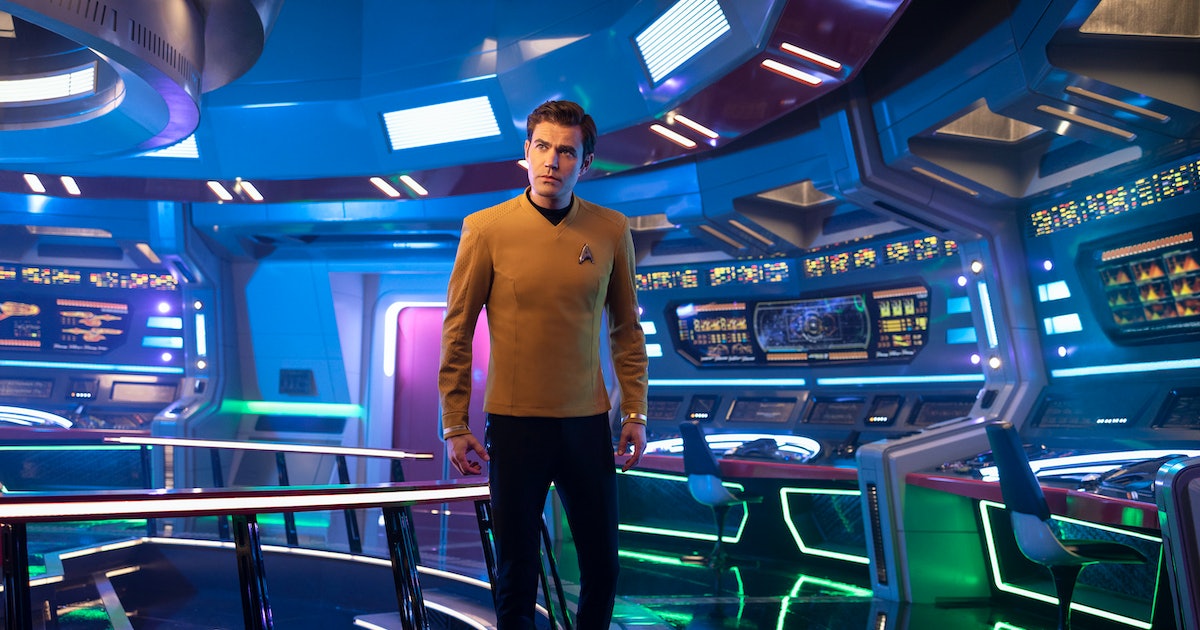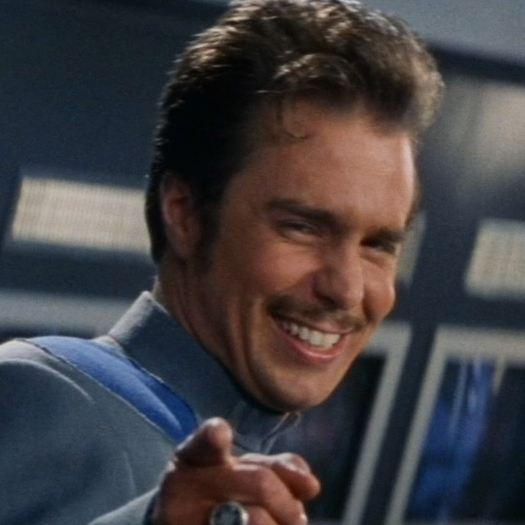A fairly thorough piece.
Whatever your view on whether it’s a pro or con for the ensemble and storytelling, SNW ‘Lost in Translation’ having covered off the ‘met him when he made fleet captain’ reference to Pike in TOS, there seems to be a great deal of flexibility for SNW to keep bringing Jim Kirk into its stories.
Here’s one unexpected take.
So what does that mean for Kirk? We have to wait until 2265 for him to take over as captain of the Enterprise, right? Well, maybe not. Canon is oddly vague on the handover from Pike to Kirk. In fact, only one episode of TOS actually takes place in 2265: “Where No Man Has Gone Before,” the second pilot. There’s also nothing that indicates Kirk didn’t serve on the Enterprise in another role before getting promoted. If, in theory, Pike were to step down and someone else became an interim captain, then nothing is stopping Kirk from serving on the Enterprise before 2265.
In The Original Series episode “The Menagerie,” Kirk noted he’d met Pike only once, “when he was promoted to Fleet Captain.”
Well, no.
MENDEZ: You ever met Chris Pike?
KIRK: When he was promoted to Fleet Captain.
MENDEZ: About your age. Big, handsome man, vital, active.
KIRK: I took over the Enterprise from him. Spock served with him for several years.
Kirk says he met Pike when he was promoted to fleet captain, and also that he took over the Enterprise from him. Those could have been separate occasions, and there’s no real reason there couldn’t be others in between that he didn’t mention to Mendez.
Thanks! I was wondering about that!
I would surmise that Tomorrow and Tomorrow and Tomorrow has somewhat altered the main timeline, and there could be some minor adjustments with the characters to accommodate the story that showrunners want to tell.
I’d consider the Pike/Kirk relationship to be a minor thing. If they meet again, I’d be okay with it if the story broke some of the canon. I mean, they already changed the timeline of the Eugenics War, so is it a huge deal if Pike and Kirk come face to face a couple more times throughout the series?
and there could be some minor adjustments with the characters to accommodate the story that showrunners want to tell.
Other than the Kelvin timeline where they said up front “THIS IS A DIFFERENT TIMELINE,” when has that ever happened?
Keep in mind, we’re talking about showrunners who contrived a reason for Pike to be “fleet captain” for a single episode just so they could have Kirk and Pike interact without invalidating one line from TOS: “Court Martial.” These are not the type of Star Trek fans who are going to make “minor adjustments” and justify it with “well you see back in S02E03 we changed the timeline, so now we can do whatever we want!”
This timeline is Altered not Alternate They did the same thing for First Contact, and ENT add just enough time travel to excuse not making the show into a history documentary yet none the less its considered part of the same story as everything that was made before but came later in the timeline.
Has the writing staff of First Contact ever confirmed, on the record, that it was their intent to alter the timeline? Has the writing staff for Enterprise ever indicated that they intended to depict an “altered” timeline?
You’re moving the goalposts asking for such explicits beyond what is reasonable. Why would they need to spell it out for you in an interview when they have the actors say “these events weren’t supposed to happen” repeatedly on screen? Are all viewers expected to familiarize themselves with every entertainment news article around and about a film or TV show in order to understand it? These things should be intuitive, and if what is intuitive isn’t the writer’s intent then that’s just a failure on the writer’s part.
they have the actors say “these events weren’t supposed to happen” repeatedly on screen?
The purpose of the “time has been altered and we need to fix the timeline” conversation that occurs near the beginning of every time travel story is definitely not to inform the audience that every subsequent installment of Star Trek will occur in an altered timeline.
In fact, it’s just the opposite. The entire reason the characters are so concerned with restoring the timeline is that they want to return to their lives in an unaltered timeline.
Except total unaltering is impossible you can put the big history book events back into place (ie zefram cochrane invented the human iteration of warp drive) but the butterflies are still set loose (ie zefram cochrane was told about the enterprise-E by time travelers and was shown it through a telescope in order to gain his trust and cooperation, a century later a hitherto unmentioned ship of the same name and rough silhouette would be launched supplanting Dauntless as the name associated with the NX-01 registry.) Our time travelers don’t notice the differences when they return home because they are so far removed from the altered events that the fog of history essentially covers things up.
Interesting headcanon, but headcanon nevertheless. I’d wager heavily that neither the First Contact nor Enterprise production staff share this interpretation, much less intended it.
I think you’ll find the crossover of last week to be indicative that SNW is again in a different universe from TOS. Spock’s changes were notable to characters who studied his past.
The timeline is more robust than that. We’re not in the Marvel or DC comic or EEAAO infinitely branching universes concept of a multiverse.
There can be branching events like the one that established the Kelvin universe but they are rare and take something of the order of the Romulan Supernova to create.
This is the prime universe of TOS and the other shows. It’s the same wide river of time, but the layers of temporal incursions - both seen in shows and movies and reported by temporal agents - accumulate changes. Tomorrow and Tomorrow and Tomorrow confirmed this.
The key events and their sequences do not change. The kind of differences that are discernible only by deep study are not sufficiently material to be necessary to protect against.







